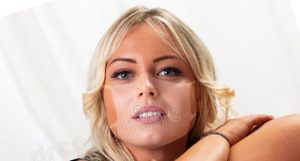What is sun tanning?
Sun tanning is the process by which the skin pigment (melanin) increases in the skin after exposure to the sun leading to a darkening effect. This is the natural defence process of our body when it is exposed to sunlight. It helps protect your skin from the sun like a shield.
People with lighter skin tones typically cannot create an adequate amount of melanin pigment, the amount that gets created isn’t as efficient, and therefore the exposed areas get skin burn.
Is SunTanning Permanent?
This is a common fear among most seeking removal of blotches, spots, and pigmentation due to sun tanning. However, the effect of tan is never permanent as the skin naturally exfoliates with time giving way to new cell formation. Besides, treating the skin regularly with exfoliation methods and applying skin-lightening creams can keep sun tanning problems at bay.
sun tanning
How to get rid of hyperpigmentation due to sun tanning?
Sunburn & hyper-pigmentation due to sun-exposure happens all the time. Pigmentation is one of the biggest problems which are very commonly seen in everyone. Here are a few tips for sun tan removal –
- Use a sunblock of broad-spectrum SPF 30, physical cream.
- Use 3 times a day, if staying inside also.
- Always apply sunscreen 20 mins before going out.
- If you are going out in the hot sun, come and then apply raw aloe vera gel to get rid of pigmentations sunburn.
- Apply ice packs on the sunburn area, as that it can reduce the redness immediately and prevent permanent damage to the skin.
- Visit on Amazon
-
sun tanning tips
Does sunscreen reduce tan?
Yes, Sunscreen is a key part for pigmentation but sunscreen alone cannot help you to reduce pigmentation. You have to use medications and some treatments according to your skin type. So that you can get rid of the pigmentation. You can try tan removal treatment like Chemical peels, Microdermabrasion, Laser toning, Creams, Face wash and cleansing lotion, and/or Home remedies.
How to prevent sun tanning of skin?
Longer sun exposure without photoprotection leads to further damage to the skin in terms of fine lines, wrinkles, pigmentation etc. To avoid these complications, use a broad-spectrum sunscreen on exposed areas of skin daily, throughout the year, even when indoors. Look out for ‘broad spectrum’ on the label, which means it protects against both UVA and UVB rays.
Broad spectrum sunscreen protects you from UVA and UVB rays, it also means that the UVA protection is proportional to the UVB protection. Broad spectrum sunscreens contain active minerals like zinc oxide and titanium dioxide. It sits on top of the skin and deflects the sun’s rays.
To protect the lips, apply a lip balm or lipstick that contains sunscreen with a sun protection factor (SPF) of 30 or higher. When outdoors, reapply sunscreen on exposed areas more often, especially after swimming and heavy perspiration. Always remember the two hours reapply rule for adequate skin protection during the daytime.
sun tanning
What is a sunburn?
Sunburn is more harmful than suntan as it causes “severe damage to the skin, which may lead to premature ageing and skin cancer.” While tanning just increases the melanin level causing the skin to darken. Furthermore, Sun tanning is defense mechanism to protect skin from UV exposure, Chemicals released by the damaged skin cells message brain, which results in pain. This happens anywhere from 6 to 48 hours after sun exposure.
Sun tanning vs sunburn
The outer layer of our skin contains melanin which is the darkening agent. Melanin is responsible for setting the skin tone. However, it may seem like a bad thing as it’s presence decides how fair or tan one is, but melanin is a useful pigment as it protects the skin from the sun’s ultraviolet rays. When skin is exposed to the sun’s rays, the skin produces more melanin and gets tanned. Prolonged sun exposure can also lead to skin damage like sunburns and it reduces skin elasticity, which leads to premature ageing.
Excessive Sun exposure causes DNA injury and ages the skin. Worst of all, prolonged and excessive sun exposure can lead to skin cancer.
Sun tan vs hyperpigmentation
Hyperpigmentation refers to the patches of skin that appear to be darker than the natural surrounding skin. These patches of skin appear darker because there is an excess of melanin. It can occur during pregnancy, hormonal conditions such as Addison’s disease, exposure to sunlight or from medications such as antibiotics, antimalarials and antiarrhythmics.
Sun tanning and acne scar
Acne has a tendency to leave dark spots as it takes weeks, even months, to heal. Post-inflammatory hyperpigmentation (PIH) is referred to the marks left behind by acne. This is the discolouration that is left behind on the skin after inflamed wounds have healed or are in the process of healing – hence the name ‘post-inflammatory.’
It appears as tan, brown or even black in colour because of increased production of melanin due to the injury or inflammation to the skin. Affecting people with a darker tone, it can be difficult to treat if deeper layers of the skin is involved.
When the skin is trying to heal, it’s creating new skin by the use of proteins called cytokines. The problem is that while all that is happening, cytokines also result in the production of more melanin. More melanin, more pigment → more discolouration -> PIH! Add sunlight to the mix, and the dark spots become darker.
How to get your natural skin color back after being in the sun?
Lemon juice
Lemon is one of the most popularly touted home remedies for getting rid of a tan, but it should not be used undiluted on the skin. No research has found that lemon juice or citric acid lightens skin or reduces melanin production. Lemon juice or slices of the lemon itself may help remove dead skin, but it can also be irritating.
Lemon juice should always be diluted and thoroughly washed off if used topically. Going out into the sun with lemon or other citrus juice on your skin, even if you tried to wash it off, can make irritation worse and may even lead to chemical burns. The juice causes a chemical reaction that makes your skin more sensitive to UV light.
Bleaching agents
Bleaching agents should also never be applied to the skin. That includes household bleach and any other product sold as a “whitening” or “bleaching” product.



Leave a Reply